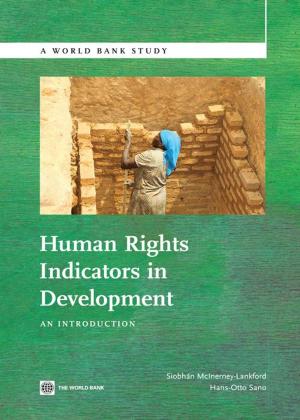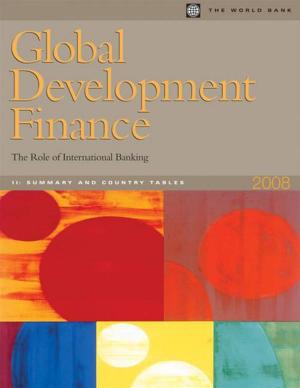Inclusive States: Social Policy And Structural Inequalities
Business & Finance, Career Planning & Job Hunting, Labor| Author: | Dani Anis A.; de Haan Arjan | ISBN: | 9780821369999 |
| Publisher: | World Bank | Publication: | April 30, 2008 |
| Imprint: | Language: | English |
| Author: | Dani Anis A.; de Haan Arjan |
| ISBN: | 9780821369999 |
| Publisher: | World Bank |
| Publication: | April 30, 2008 |
| Imprint: | |
| Language: | English |
The heterogeneity of social structures and cultural identities in many developing countries, together with traditional hierarchies, rivalries, and deep-seated biases, has perpetuated inequities. Inclusive States: Social Policy and Structural Inequalities examines the role of the state and society in addressing structural inequalities and identifies a set of policy recommendations to redress them. This book defines structural inequality as a condition arising from unequal status attributed to a category of people in relation to others, a relationship perpetuated and reinforced by unequal relations in roles, functions, decision rights, and opportunities. Inclusive states are those that direct policies to address the needs of all, that respect the rights of citizens to exercise voice and influence on which services are provided and how they are delivered, and that have an interest in strengthening the social contract with their citizens. A central focus of policy remains a concern for equity, both to level the playing field to encourage social mobility and to ensure equity in the distributional effects of policy reforms and development interventions.
The heterogeneity of social structures and cultural identities in many developing countries, together with traditional hierarchies, rivalries, and deep-seated biases, has perpetuated inequities. Inclusive States: Social Policy and Structural Inequalities examines the role of the state and society in addressing structural inequalities and identifies a set of policy recommendations to redress them. This book defines structural inequality as a condition arising from unequal status attributed to a category of people in relation to others, a relationship perpetuated and reinforced by unequal relations in roles, functions, decision rights, and opportunities. Inclusive states are those that direct policies to address the needs of all, that respect the rights of citizens to exercise voice and influence on which services are provided and how they are delivered, and that have an interest in strengthening the social contract with their citizens. A central focus of policy remains a concern for equity, both to level the playing field to encourage social mobility and to ensure equity in the distributional effects of policy reforms and development interventions.















